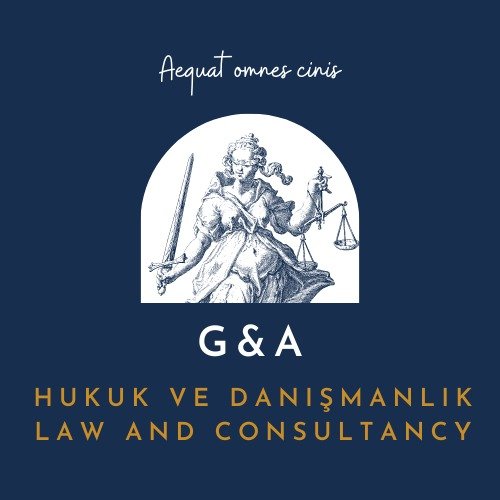Best Sexual Abuse Lawyers in Ankara
Share your needs with us, get contacted by law firms.
Free. Takes 2 min.
List of the best lawyers in Ankara, Turkey
About Sexual Abuse Law in Ankara, Turkey
In Ankara, Turkey, the laws pertaining to sexual abuse cases are strict and protective. The Turkish Penal Code contains comprehensive rules and regulations regarding sexual offenses, including sexual abuse. Turkey has committed to protecting the rights of victims, as demonstrated by robust legal frameworks in place, and a series of outreach services, especially for minors, who are the most vulnerable victims of sexual abuse.
Why You May Need a Lawyer
Legal representation in sexual abuse cases is vital. Firstly, an attorney can help guide you through the legal process and increase your chance of pursuing a successful case. Secondly, it might be emotionally distressing to engage directly with the accused abuser in court. A lawyer can provide the much-needed emotional buffer. Lastly, they can help identify pieces of evidence that might be overlooked by an individual unfamiliar with the law.
Local Laws Overview
The Turkish Penal Code particularly criminalizes sexual abuse under articles 102, 103, and 104. Penalties differ according to the victim's age, the nature of the act, and the relationship between the victim and the offender. Aggravated life imprisonment is the strictest penalty for instances including force, threat or fraud, or abusing a person who cannot resist due to physical or mental incapacity.
Frequently Asked Questions
1. What are my rights as a victim?
Turkish law ensures the right to integrity, privacy, compensation and legal assistance for sexual abuse victims. If you are a victim, you have the right to file a complaint even after a long duration.
2. How is sexual abuse defined in Turkish law?
Sexual abuse in Turkish law is defined as any kind of unwanted sexual behavior that is carried out without the explicit consent of the victim, irrespective of the relationship between the victim and the aggressor.
3. What is the statute of limitations for sexual abuse cases in Turkey?
For sexual offenses committed against minors, the statute of limitations begins when the victim reaches the age of 18 and runs for 15 years in most cases. There is no statute of limitations for more severe sexual crimes.
4. Can I report sexual abuse anonymously?
Yes, anonymous reports are accepted by the Turkish police and social services, and they are obligated to investigate such reports.
5. How can I protect my privacy during the legal process?
A lawyer can help ensure privacy and anonymity throughout the court proceedings as much as possible. Many child services organizations also provide protective services for the victim and their family during the legal proceedings.
Additional Resources
Several organizations in Turkey offer support services for sexual abuse victims. The Ministry of Family and Social Policies and non-governmental organizations like Mor Çatı, KAMER, and TCKYA offer help services.
Next Steps
If you need legal assistance regarding sexual abuse, firstly, ensure your safety. If you are in immediate danger, call law enforcement immediately. If it's a non-emergency, contact a local lawyer specializing in sexual abuse cases. Schedule a consultation to discuss your situation, understand your rights, and determine the best course of action. It's also recommended to contact support organizations that can offer emotional support and assistance.
Lawzana helps you find the best lawyers and law firms in Ankara through a curated and pre-screened list of qualified legal professionals. Our platform offers rankings and detailed profiles of attorneys and law firms, allowing you to compare based on practice areas, including Sexual Abuse, experience, and client feedback.
Each profile includes a description of the firm's areas of practice, client reviews, team members and partners, year of establishment, spoken languages, office locations, contact information, social media presence, and any published articles or resources. Most firms on our platform speak English and are experienced in both local and international legal matters.
Get a quote from top-rated law firms in Ankara, Turkey — quickly, securely, and without unnecessary hassle.
Disclaimer:
The information provided on this page is for general informational purposes only and does not constitute legal advice. While we strive to ensure the accuracy and relevance of the content, legal information may change over time, and interpretations of the law can vary. You should always consult with a qualified legal professional for advice specific to your situation.
We disclaim all liability for actions taken or not taken based on the content of this page. If you believe any information is incorrect or outdated, please contact us, and we will review and update it where appropriate.









